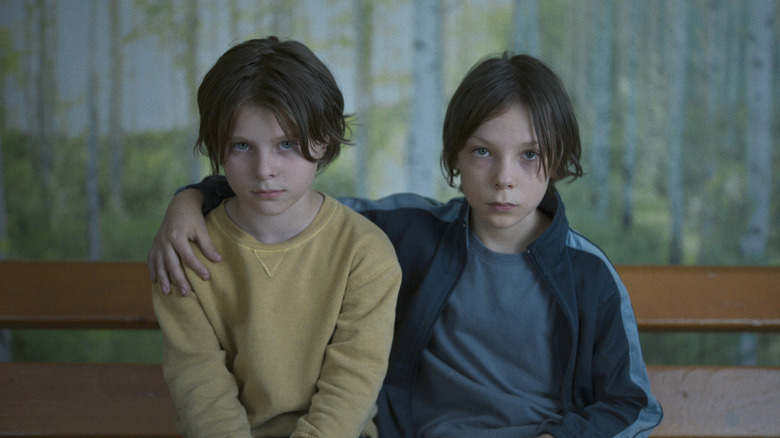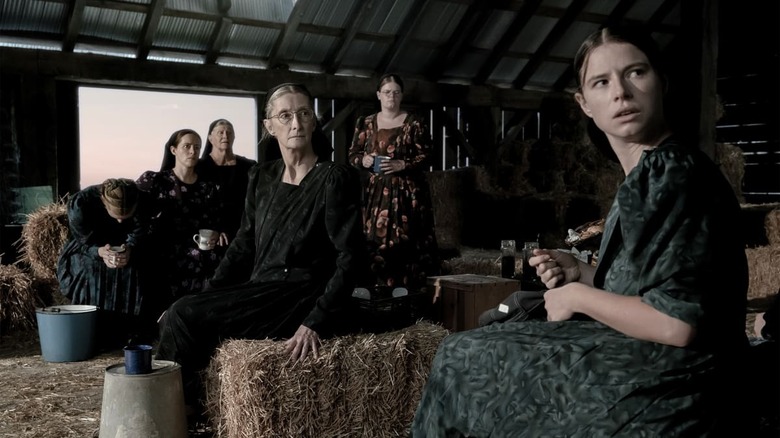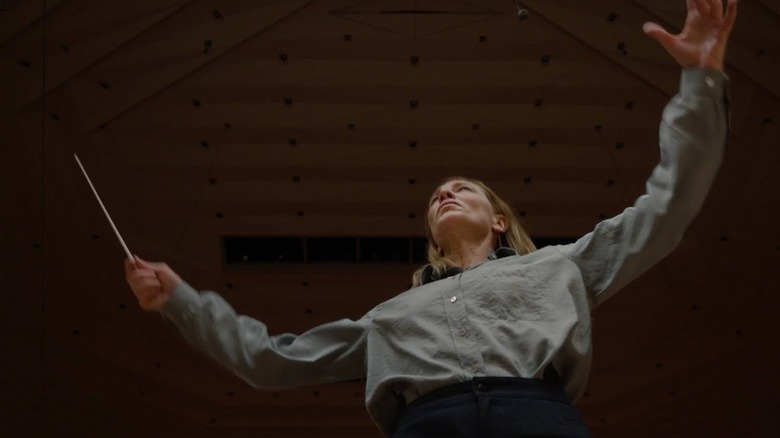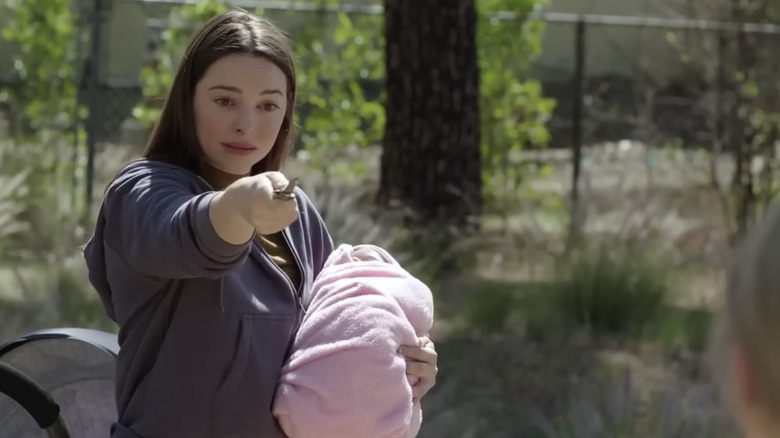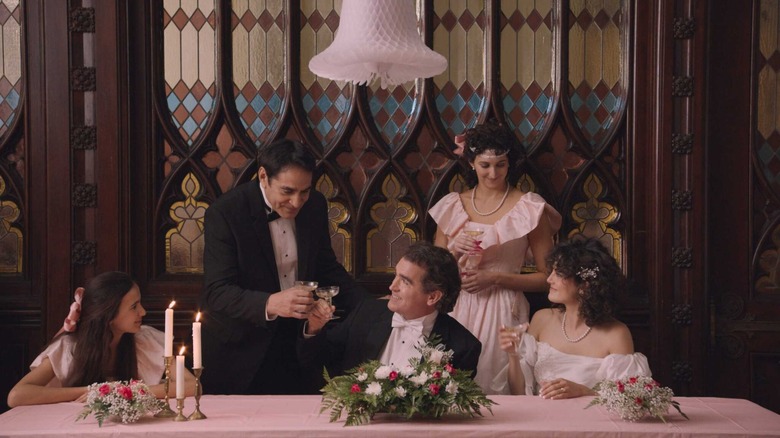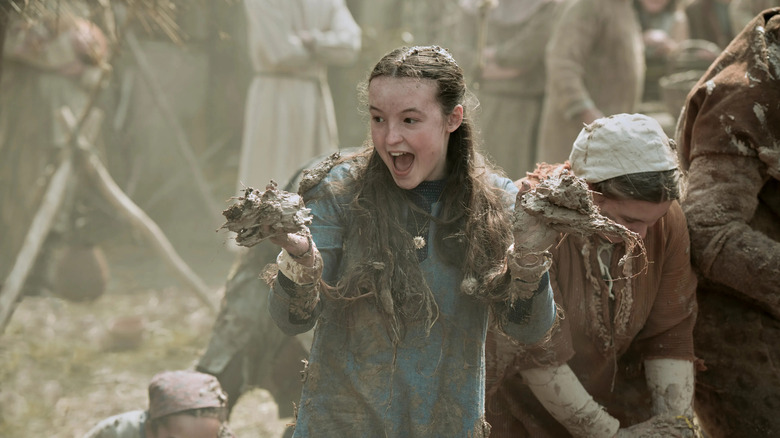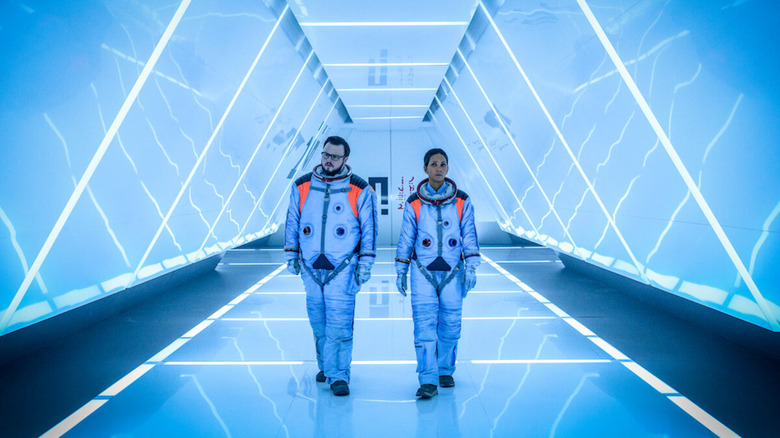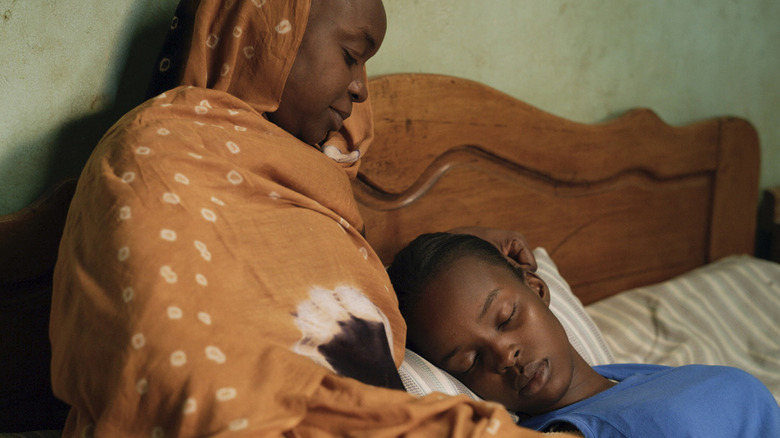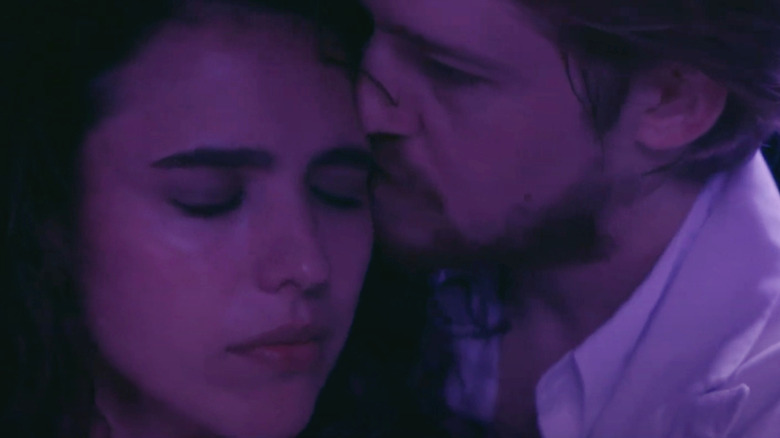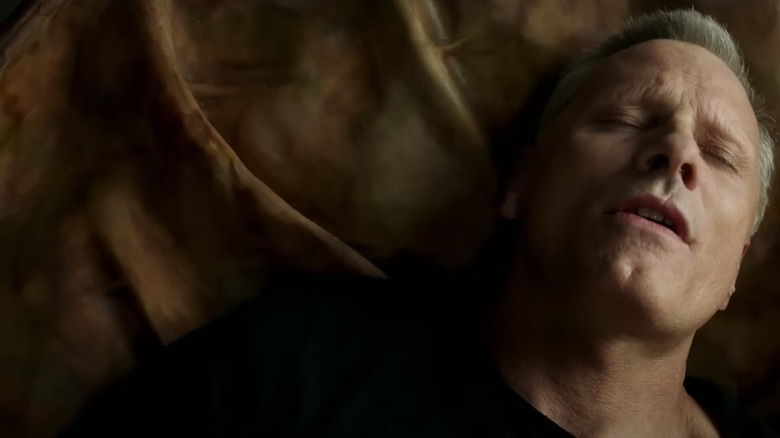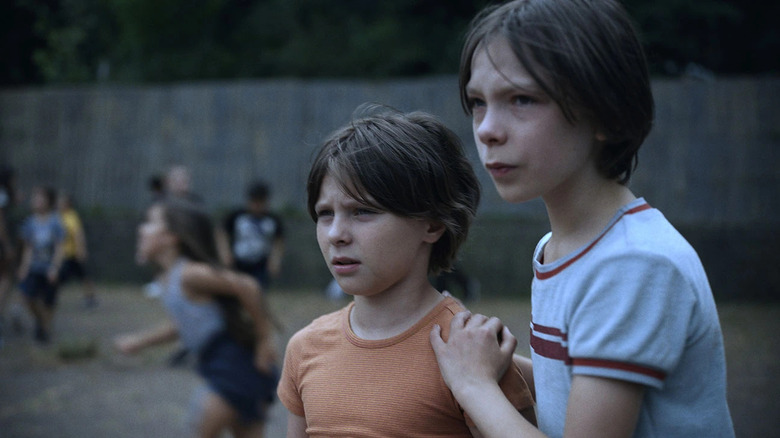Ryan Coleman's Top 10 Films Of 2022
The year is finally at an end. Despite all the breathless prophesying and doomsdaying, the industry is in more or less the same place it started in January. Marvel has not, and probably never will completely wrestle the production and exhibition of non IP-films about regular human beings into the ground, adults are slowly but surely returning to theaters to see film artists play with original ideas, and there still are no movie stars.
Film culture is as dynamic and exciting as ever. I had the good fortune to attend both the Cannes and Toronto International Film Festivals this year, which means I was exposed to a far broader range of international cinema than what my trusty combination of small indie theaters, VOD services like MUBI and Kanopy, and effedupmovies.com can provide. That also means many of those films, no matter how wonderful, won't make the cut, as they didn't secure a 2022 release. Before I jump into what did, here are some of the honorable mentions that either fell just short of the top, or are eyeing that 2023 release.
My big 5 2023 release date TBA baddies: "Nostalgia" (Mario Martone), "Saint Omer" (Alice Diop), "Pacifiction" (Albert Serra), "Other People's Children" (Rebecca Zlotowski), and "R.M.N." (Cristian Mungiu). There was also "Corsage," "Enys Men," "Skinamarink," "The Fabelmans," "Godland," "Snow and the Bear," "The Maiden," and perhaps the most extraordinary film I saw all year on the subject of interpersonal violence, "Love According to Dalva." Also, honestly? "Halloween Ends."
I didn't go for the "best" films. I went for the ones that still stick in my mind, and that still work their way into conversation, for all their flaws. Here we go:
10. Women Talking
Sometimes I think I hate this movie. Writer/director Sarah Polley denuded the landscape of color and vitality, made a clear effort to universalize what should have stayed an extremely specific and personal story, and cast actors not known for their subtlety or ability to conform to their surroundings (Ben Whishaw, Jessie Buckley, Frances McDormand).
But no other film has generated as much thought or feeling for me this year. "Women Talking" makes the most of its conceit, one that would be unbelievable were it not based on true events. After a plague of sexual violence rocks a Bolivian Mennonite community for years, eight women must decide the fate of the rest of the village's women over a series of conversations that last two nights, before their attackers return from jail.
Certainly Polley reduced the complexity of the novel by Miriam Toews in the process of adaptation, but even that generated frustration, curiosity, and sometimes thrill in thinking and talking over this movie. Very few films were smarter this year on the subjects of mass violence, the function of witnessing and testimony, and the impossible bind that women too often find themselves in: uniquely vulnerable to the violent caprices of men, even as they love, care for, and literally bring them into existence.
Other films have made me think and spurred me into conversation this year, but few have made me seek out entire books to read or wrung tears out of my eyes while discussing them. I think I love it.
9. TÁR
"TÁR" is the new auteur/"acteur" film from Todd Field and Cate Blanchett, in which Blanchett plays a megalomaniac composer and conductor who must juggle being a wife, mother, and world-famous artist while evading both cancellation and spooky noises.
My first reaction after the credits began on the film's finale was a kind of sadness. Devilish, intelligent, slippery, masterful adult dramas like this used to hit theaters twice, thrice, even 10 times a month once upon a time. "TÁR" is smart, "TÁR" is good, but if you just look around at the thinkpieces, Twitter threads, blogs, and essays it's launched, and the fervor with which it's debated, its release also seems a clear indicator that the people crave more meaty, thinky stories about real, flawed people. Listen up Hollywood!!
"TÁR" is a welcome return from writer/director Todd Field, who knows how to provoke just enough without threatening his studio good graces. It's also a welcome return from Cate Blanchett, who hasn't had a role as worthy of her magisterial talents since 2015, when she had three: in "Carol," "Manifesto," and "Knight of Cups." There's enough to chew on around performance, power dynamics, and the horribly underexplored concept of female genius here to last a long time. If I have one hope for this movie, though, it's that it gets American audiences curious about the phenomenal German actress Nina Hoss, who plays Blanchett's wife and the 1st violin in her orchestra.
8. Revenge For My Mother
Critics' polls, end of year lists, and the broader conversation around film itself are always riddled with blind spots. Short films, undistributed films, even international films, to some degree (definitely films from the global south). But even among these blind spots there's a blind spot: made-for-TV movies.
I am a big TV movie enthusiast. Though they aren't being cranked out at near the same volume now that very few young people actually pay for cable, and since the big broadcast networks ceased their "movie of the week"/teen soap-tie in cycles in the 2000s, there is still a whole world of wonderful made-for-TV films to be explored. To my mind, the Lifetime Movie Network has been creating some of the most radical, thrilling, genuinely subversive films out there — made for TV or not — under the cover that they're corny thrillers for moms.
"Revenge For My Mother" is this year's apotheosis of everything special going on at Lifetime. Directed by one of the network's most prolific journeymen, the Neil Breen/Ed Wood-esque Doug Campbell, and co-written by Barbara Arsenault (73% of all Lifetime movies were written and/or directed by women), this film follows a fairly conventional genre set up. Girl meets boy, girl gets better job than boy, girl needs assistant, assistant is the daughter of the woman girl hit with her car 20 years ago, assistant plots girl's demise, but girl foils assistant at the last minute by knocking her unconscious with the baby she was trying to kidnap. It must be seen to be believed.
7. The Cathedral
Ricky D'Ambrose's "The Cathedral" achieves the impossible: imbuing a Bressonian study of objects, gestures, and negative space with real human passion and anguish.
The film tells the story of the convergence of two families, the Orkins and the Damrosches, over three generations. Though a series of meticulously blocked scenes and shots with precisely arranged mise-en-scene, D'Ambrose is able to flood this common, relatable story with unbelievable pathos. Grandparents are shuffled around from ungrateful child to ungrateful child, parents fall in love, out of love, and divorce, and grandchildren grow up amidst it all. And we watch it shape them.
At first the tidy, aesthetically driven approach seems counterposed to the film's narrative goal: to tell a compelling human story. But by ratcheting up the concision and control, D'Ambrose is able to pierce your heart with the rare close-up of an expressive face or the simple image of a slice of birthday cake sitting on a cheap party plate, uneaten.
6. Catherine Called Birdy
I've always loved Lena Dunham's work, but even I was surprised that she managed to create something as tenacious, vivacious, and bursting with sincerity as "Catherine Called Birdy." It's been a rough few years since the voice of her generation wrapped on her star-making HBO series "Girls," and in the meantime she's mainly been writing, underwriting, and producing other people's projects.
From just the first images and sounds of "Catherine Called Birdy" — the rambunctious, lute-filled jig, Bella Ramsey's mischievous narration, and the inventive illustrated titles — I knew Dunham was back. But not exactly as she was. Her compulsive confessionalism, provocateurism, and solipsism (which can in truth be found more or less unchanged in her other 2022 project, "Sharp Stick," which I also love) have been significantly tempered by a newfound warmth and lightness.
"Catherine Called Birdy" is the first big screen adaptation of Karen Cushman's beloved 1994 children's novel. It tells the story of Lady Catherine of Lincolnshire (called Birdy for her love of animals), the wildly rebellious 13-year-old heiress to a declining feudal estate. Her father (Andrew Scott) plans to marry her off to the highest bidder to settle his debts. The film follows Birdy eluding this scheme while learning something about family, friendship, and love along the way. It's bright, winning, and probably the most true to the Middle Ages period piece, at least linguistically, I've ever seen.
5. Moonfall
"Moonfall" is love. "Moonfall" is life. Ecstatic cinema. Pure spectacle. Bizarre characters and even weirder characterizations. Insane CGI. Implausible rescue missions. Lines like "Everything we knew about the nature of the universe has just gone out the window" and "You make sure your trigger-happy buddies keep their hands off the nukes!" You can almost hear Roland Emmerich dumping millions of dollars in the trash in the background of the sound mix.
I can't intellectualize my love of this movie, and why would you want me to? Do I need to give you a plot description? The moon is falling, and then they discover it isn't actually a moon. I love Patrick Wilson and Halle Berry. I love Emmerich's unique grasp of camp sincerity. I love Michael Bay too, honestly, but he wishes he was as un-self-aware as Emmerich. Only someone operating solely off the fumes of their own vibes could make something this pure.
4. Lingui: The Sacred Bonds
MUBI was my favorite direct-to-stream distributor of the year. They acquired and released an incredible lineup of films these past 12 months, including the seventh entry on this list, "The Cathedral," and this entry: Mahamat-Saleh Haroun's stunning "Lingui: The Sacred Bonds."
The film follows Amina (Achouackh Abakar Souleymane), a devout Muslim and single mother living on the outskirts of N'Djamena in Chad. When her 15-year-old daughter Maria (Rihane Khalil Alio) is expelled from school after she's discovered to be pregnant, Amina's simple life is thrust into chaos. The pair must wrestle against a strict religious and cultural commandment against abortion, both personally and literally, defying a paternalistic Imam, lecherous neighbor, and their own internal resistance.
Souleymane's performance as the fierce, conflicted, and endlessly surprising Amina is riveting, and the way Haroun captures N'Djamena is almost painfully exquisite. Brilliant marigolds and saffron oranges stand in stark contrast against the aquamarine sky, dusty red clay roads, and greying green buildings of tin and concrete. This film turned me on to Haroun's work, and I'm excited to dig into as much as I can find of it in 2023.
3. Stars at Noon
I go up and down with Claire Denis. Sometimes her instinctive approach to filmmaking, which embraces mystery as it is rather than seeks to explain it, renders films that are too abstract for my taste ("Beau Travail," "Trouble Every Day"). But sometimes she makes films that give the "greatest living filmmaker" allegations credence ("35 Shots of Rum," "White Material," "Bastards"). "Stars at Noon" is one of the best films Denis has made in years, one that doesn't just train its eye on sensuality as a subject, but integrates the erotic, unreliable senses into its very core, where they become the very form of the film.
"Stars at Noon" is an adaptation of Denis Johnson's novel of the Nicaraguan Sandinista Revolution of the mid-'80s. As she did with "White Material," Denis smudges the particularities of the conflict so that the subjectivity of her fascinatingly flawed lead character can take prominence. Margaret Qualley gives the best breakthrough performance of the year as Trish, an opportunistic, amoral scavenger abandoned by her government as the borders around the increasingly strife-ridden country turn to mush.
Denis' use of light and music, her ability to conjure the feeling of physical and sexual heat, the way she captures the seductive contrast between the lush jungles and corroded cities, her canny use of the uncharismatic Joe Alwyn as a blank screen that Qualley can project onto ad infinitum ... it all adds up to something magnificent and very hard to classify.
2. Crimes of the Future
Unlike Claire Denis, I am mostly down on David Cronenberg. I've been unable to connect with almost every "classic" from his heyday — be it "Dead Ringers," "The Brood," or even "Videodrome," which, with its exploration of the epistemology of violence, seemed tailor-made for me. They strike me as cold, bitter, even lifeless studies of human experience and feeling, but their remoteness from feeling itself renders them priggish.
"Crimes of the Future" feels altogether different from anything I've ever seen by the Canadian master ... except maybe "Maps to the Stars." I can't explain why that film's corny, rough-edged, awkward aesthetics and execution provoked a deep reaction in me, and I can't with "Crimes of the Future" either. It's a terse film, a cerebral one, but it's also deeply sexual, upsetting, provocative, brilliant on an allegorical level and in almost every other way inscrutable.
The film is about a performance artist couple (Lea Seydoux, who usually steals the show, but can't here because of the magnificent Viggo Mortensen) who live in a ruined coastal enclave in a future where environmental waste has polluted virtually every atom of existence. Human pleasure sensors have atrophied, surgery has been taken up as "the new sex," new organs with frightening capabilities are spontaneously generating, and amidst all this, Cronenberg weaves capers, crime plots, and high theorizing. An uneven film in the most exciting way.
1. Playground
I didn't think at the beginning of the year when I rented Belgian director Laura Wandel's feature debut "Playground" on the Laemmle virtual cinema that it would eventually top the list of nearly 100 new releases I would go on to see. But after revisiting it, there's no other choice.
No other film on this list is as brutal, as extraordinarily revealing, as fearless and uncompromising, or as emotionally resonant as "Playground." We see the world of the film through the eyes of its seven-year-old protagonist, Nora (Maya Vanderbeque). Nora and her older brother Abel (Günter Duret) have just enrolled in a new school, where Abel is quickly singled out as a target of bullying. He's lanky, shy, has wide, expressive eyes, and doesn't have the temerity (read: is too naturally kind) to fight back.
Nora must watch, as we must watch, as Abel is bullied to unspeakable extents. The administration does nothing, other children turn their heads, and Abel is too ashamed to tell his parents, forcing Nora into an impossible position: do nothing, and suffer from enormous guilt and fear, or throw herself into the mix, despite how that may exacerbate things.
In her unflinching resolve in the face of such cruelty, Wandel recalls some of the great contemporary film ethicists, Michael Haneke, Lynne Ramsay, and Lee Chang-dong among them. If in just 77 minutes she can accomplish all this, I can't wait to see what she does next.
